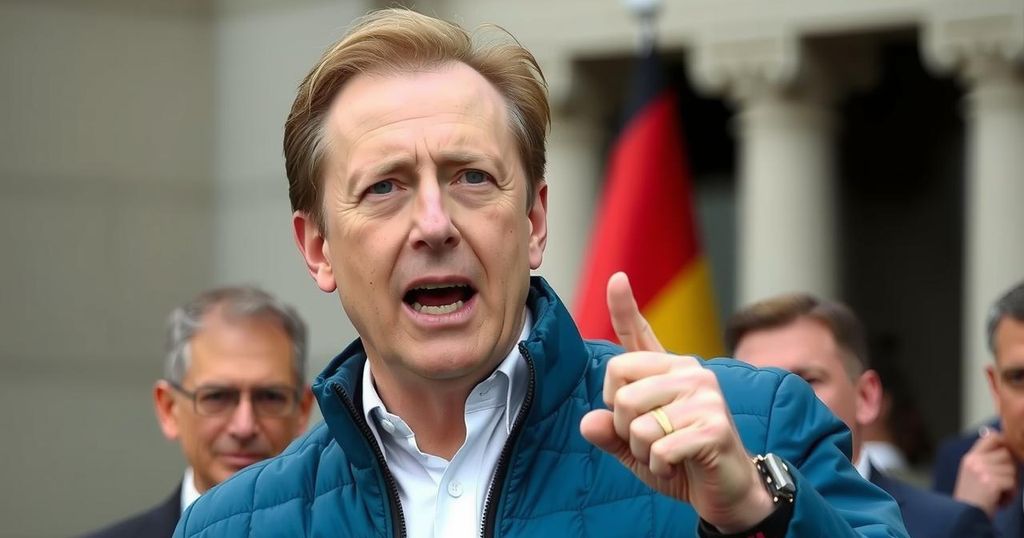Elon Musk’s Controversial Backing of Germany’s AfD Ahead of Elections
Elon Musk publicly endorsed Germany’s far-right AfD in a recent op-ed, claiming the party is vital for the nation’s economic recovery and identity. His views sparked outrage among German politicians, leading to protests within the newspaper’s editorial staff. Musk’s support raises concerns about foreign influence in domestic elections and the normalization of extremist narratives in the public discourse.
In a recent op-ed published by Welt am Sonntag, Elon Musk has shown his support for Germany’s far-right political party, the Alternative for Germany (AfD). He described the AfD as “the last spark of hope for the country,” claiming that the party is crucial to Germany’s economic recovery and identity preservation amid concerns of cultural and economic decline. Musk dismissed accusations of the AfD being extremist, highlighting the party leader’s diverse relationship as evidence against such characterizations. His positive remarks about the party’s deregulation and taxation policies were met with fierce criticism from various political figures in Germany, who condemned his interference in the electoral process. The publication of Musk’s op-ed has stirred controversy within the editorial team at Welt, leading to protests and resignations. The implications of Musk’s endorsement center around questions of election influence and the normalization of far-right ideologies in German politics.
The atmosphere surrounding Germany’s upcoming elections is increasingly charged, with significant parties like the AfD gaining momentum. The AfD’s recent polling indicates it is positioned second behind the conservative Christian Democratic Union (CDU). Musk’s intervention highlights the intersection of international influence and domestic political discourse as Germany grapples with the implications of extreme ideologies within its political landscape. This scenario raises pertinent questions about the role of foreign entities in shaping national politics, particularly regarding the press’s responsibility and freedom in this context.
In conclusion, Elon Musk’s op-ed asserting support for the AfD marks a notable and contentious intersection of foreign influence on German politics. His claims about the party’s potential benefits for Germany have garnered both endorsement and significant backlash, emphasizing the controversial role prominent figures can play in national elections. As political tensions rise, this scenario prompts a broader discussion about the integrity and objectivity of media platforms and the implications of international endorsements of nationalist movements.
Original Source: www.dw.com




Post Comment